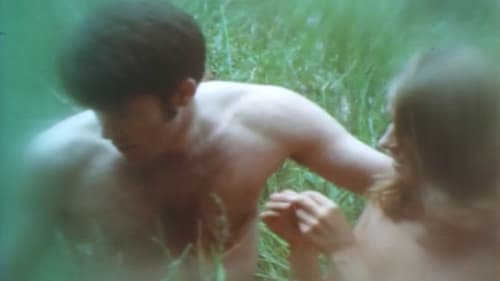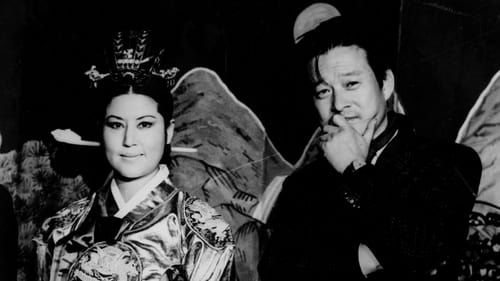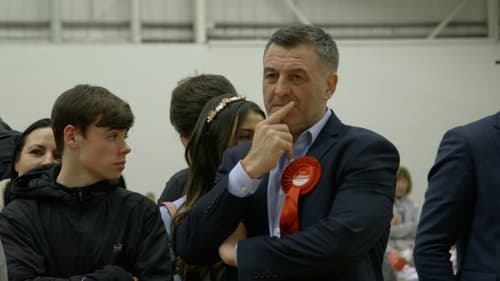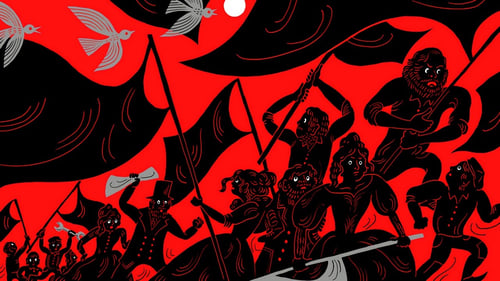Ein Traum von Revolution (2024)
ジャンル : ドキュメンタリー
上映時間 : 1時間 35分
演出 : Petra Hoffmann
シノプシス
When the revolution in Nicaragua won its victory nearly 40 years ago, the world began to dream. A young generation was taking the reins in a country of grand utopias. From West Germany alone, 15,000 “brigadists” travelled to help rebuild the war-torn country: liberals, greens, unionists, social democrats, leftists and church representatives harvested coffee and cotton, built schools, kindergartens and hospital wards. No movement has mobilised so many people. What became of the hopes and dreams of the revolutionaries and their supporters?

A feature length, lively - montage style - documentary, capturing the essence of what life was like in socialist Hungary - dubbed the "The most cheerful barrack" back then - using contemporary music, interviews, adverts and news footages.

Joan Manuel Serrat fled to Mexico when Franco ordered his persecution. In Argentina and Chile, his commitment against military regimes is still remembered. Joaquín Sabina arrived later. His poetry bewitched the audience. In Argentina, he is a tango singer as much as a rocker; in Mexico, the mariachis sing their songs. The former is a symbol, a venerated figure; the latter is a “cuate,” as they say in Mexico, a buddy with whom you can always count.

Hard things were said. Incredible things were said. It is time to think about everything that was said. An account of Kirchnerism, a left-wing populist movement that ruled Argentina from 2003 to 2015, led by Néstor Kirchner (1950-2010) and his wife Cristina Fernández de Kirchner.

"Subversivas" is a documentary that reveals the brazilian military dictatorship from the perspective of women. Teresa Angelo, Gilse Cosenza, Thereza Vidigal, Angela Pezzuti and Delsy Gonçalves joined the resistance to the military regime in different ways. Their memories bring out events that marked that time and their life. These statements reveal their effort for freedom and democracy not only in political actions, but also in their family, work and everyday relationships, imbued with a belief and search for a fair and free country.

Starting as a documentary on the sexually liberated culture of late-Sixties Denmark, Sexual Freedom in Denmark winds up incorporating major elements of the marriage manual form and even manages to squeeze in a montage of beaver loops and erotic art. All narrated with earnest pronouncements concerning the social and psychological benefits of sexual liberation, the movie, is a kind of mondo film dotted with occasional glimpses of actual sex.

Halouver is a small community in the Northern Caribbean of Nicaragua. In November of 2020, two hurricanes divided the village in two and destroyed its infrastructure. Now, its villagers must decide between coming back and rebuilding their homes from the rubbles in spite of the risks that conveys or starting their lives somewhere else, leaving behind their lives in front of the sea. This documentary was made by Hora Cero.

Hong Kong, 1978. South Korean actress Choi Eun-hee is kidnapped by North Korean operatives following orders from dictator Kim Jong-il. Her ex-husband, film director Shin Sang-ok, undertakes her search, but soon after he is kidnapped as well. In 1983, after living through years of tribulations, Kim Jong-il puts them in charge of the North Korean film industry in the hope of gaining international recognition.

Over three pivotal years in party politics, activists in the safest Labour seat in the country campaign for change under the banner of Jeremy Corbyn's 'For The Many' manifesto.

In the period 1891-1927, Henriette Roland Holst goes through a dramatic development. As an aspiring poet from an affluent bourgeois milieu she throws herself, full with idealism and conviction, into the labour movement. Within the various socialistic parties however, a fierce battle on direction takes place, wherein Henriette has trouble finding her place. After returning disillusioned from a trip to the Soviet Union, she does not feel at home in any leftist party. Later she will recollect on this period in her biography "Het vuur brandde voort" (translation: "The fire rages on"). The film reconstructs this period with the use of old film material combined with texts by Henriette Roland Holst herself: fragments from letters, poems, speeches and books, sparingly supplemented with personal commentary by the filmmaker.

The portrait of the former news editor of STV, who created a "positive image of Slovakia" during the reign of Vladimír Mečiar, reveals how the post-totalitarian mechanisms of television manipulation worked.

History of US labor movements and their suppression. It includes sections on the American Constitution; the Civil War draft riots; Reconstruction; Industrialization; the evolution of the police; the robber barons; early American labor unions; and major mid-to-late 19th Century labor events including the uprising of 1877, the Haymarket Affair, the Homestead strike and the New Orleans General Strike. The introduction examines the West Virginian coal wars of the early 20th Century, culminating in the Battle of Blair Mountain.

Born June 8, 1964, Frank Matter films four "twins", born the same day as him, but in other latitudes. Interweaving their life stories with rich archival material, the filmmaker links these Parallel Lives with elements from his own biography, to compose a fascinating fresco where intimate trajectories are part of the advent of the global village.

Fernando Lemos, a Portuguese surrealist artist, fled from dictatorship to Brazil in 1952 searching for something better. The movie follows the last moments of his journey and the struggle for the preservation of his legacy, trying to fulfill his last great desire: to be a good dead man.

Images of Argentinian companies and factories in the first light of day, seen from the inside of a car, while the director reads out documents in voiceover that reveals the collusion of the same concerns in the military dictatorship’s terror.

This film, directed by Dominique GAUTIER, takes the viewer on a worldwide excursion into the history and structure of the Esperanto language, introducing its present-day speakers. The words of these users of the language are reflective of a variety of activities and viewpoints, and in the film they are interwoven so as to reveal bit by bit how the utopia of its initiator, Ludwig ZAMENHOF, is concretised every day.

In 1986, Ross McElwee (Sherman's March) and Marilyn Levine were making a film about the 25th anniversary of the Berlin Wall, when the imposing structure was still very much intact as the world’s most visible symbol of hardline Communism and Cold War lore. They thought they were making a documentary on the community of tourists, soldiers, and West Berliners who lived in the seemingly eternal presence of the graffiti emblazoned eyesore. But in 1989, as the original film neared completion, the Wall came down, and McElwee and Levine returned to Berlin, this time to capture the radically different atmosphere of the reunified city.

9.11事件を綿密に取材し世界中に賛否両論を巻き起こしたマイケル・ムーア監督による問題作。当時のアメリカ大統領であるブッシュ批判と反戦をテーマに、エンタテインメント性豊かに演出したドキュメンタリーだ。












